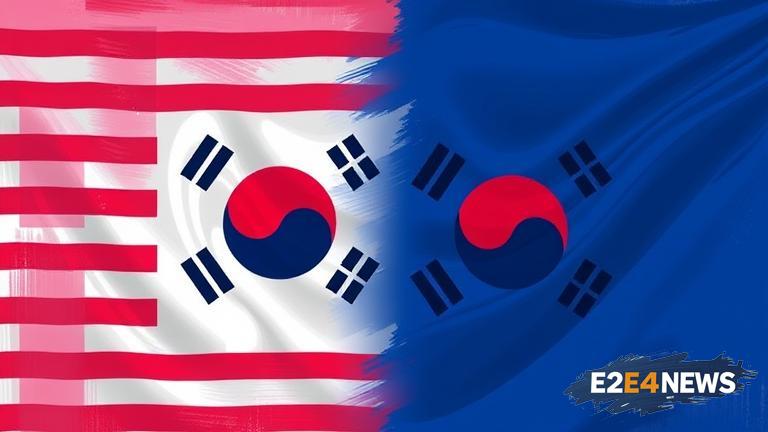The United States has recently imposed tariffs on South Korea, a move that is expected to have significant implications for the global trade landscape. The tariffs, which were announced on July 31, 2025, will affect a range of South Korean products, including electronics, automobiles, and steel. The decision has been met with widespread criticism from South Korean officials, who argue that the tariffs are unfair and will harm the country’s economy. The US has cited national security concerns as the reason for the tariffs, claiming that South Korea’s trade practices are a threat to American industries. However, many experts believe that the true motivation behind the tariffs is to protect American businesses and to reduce the trade deficit between the two countries. The tariffs are expected to have a significant impact on the South Korean economy, which is heavily reliant on exports to the US. The country’s exports to the US account for a significant portion of its GDP, and the tariffs are likely to lead to a decline in exports and a subsequent slowdown in economic growth. The move is also expected to have a negative impact on American consumers, who will face higher prices for South Korean products. The tariffs are part of a broader trend of protectionism in the US, which has been characterized by a series of trade wars with countries around the world. The US has already imposed tariffs on China, the European Union, and other countries, and the move against South Korea is seen as a further escalation of this trend. The South Korean government has vowed to take retaliatory action against the US, which could lead to a further escalation of the trade tensions between the two countries. The situation is being closely watched by other countries, which are concerned about the potential impact on the global trade landscape. The World Trade Organization (WTO) has also expressed concerns about the tariffs, which it says could violate international trade rules. The US has defended its actions, saying that it is simply trying to protect its national interests and to ensure a level playing field for American businesses. However, many experts believe that the tariffs are a mistake and will ultimately harm the US economy. The tariffs are also expected to have a negative impact on the global economy, which is already facing significant challenges. The move is seen as a further blow to the rules-based international trading system, which is already under strain. The situation is likely to continue to evolve in the coming weeks and months, with potentially significant implications for the global trade landscape. The US and South Korea have a long history of trade relations, and the tariffs are seen as a significant setback for the two countries. The move is also expected to have a negative impact on the relationship between the two countries, which has been characterized by close cooperation on a range of issues. The tariffs are a significant development in the ongoing trade tensions between the US and its trading partners, and are likely to have far-reaching implications for the global economy. The situation is being closely watched by businesses and investors around the world, who are trying to navigate the complex and rapidly changing trade landscape. The US has said that it is willing to negotiate with South Korea to resolve the trade tensions, but it is unclear whether a deal can be reached. The tariffs are a significant challenge for the South Korean government, which is facing pressure from businesses and consumers to take action to protect the country’s economy. The move is also expected to have a negative impact on the US economy, which is already facing significant challenges. The tariffs are a significant development in the ongoing debate about the role of trade in the global economy, and are likely to have far-reaching implications for businesses and consumers around the world.
